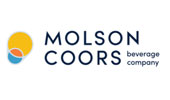
Molson Coors Beverage Company Announces Updates Related to COVID-19
Action
Since the outbreak of the Coronavirus pandemic, Molson Coors Beverage Company has taken a number of actions aimed at protecting and supporting employees – including requiring employees to work from home if they are able, creating a new voluntary paid leave program, putting in place a high-risk leave policy, planning a safe return to market for sales employees and implementing a wide variety of measures to protect its employees who are working in its breweries. The company is also announcing that it is withdrawing, in its entirety, its financial outlook for 2020 and beyond that was previously provided on February 12, 2020 due to uncertainty regarding the impact of the COVID-19 pandemic.
Molson Coors president and chief executive officer Gavin Hattersley said, “These are challenging times for the world and our company, and our priority is to ensure the safety of our people and the stability of our business. I’m proud of how resilient our people have been during this time, including the people who brew, package and ship our quality beers and keep our breweries and business running. I can’t thank them enough. I am also proud of how our teams are stepping up to take care of our communities who need our help more than ever.”
Over the past weeks the company rolled out additional actions to help ensure the health and safety of its people and aims to continue building on these efforts as they have over the past few weeks. These actions include:
- Put in place remote working guidelines for all employees and contractors across North America who are not doing business-critical on-site activities.
- Created a new voluntary paid leave program, available to any employee whose work must be done on site and is at high risk for severe outcomes of coronavirus. Under the program, employees deemed by federal health authorities to be at high risk may elect paid leave of 60% of their regular wages.
- Created a new paid leave policy, adding up to 80 hours of paid leave to ensure anyone who contracts the coronavirus or is forced to self-quarantine can do so without losing pay or being forced to use their normally allotted sick leave.
- Implemented additional measures to protect our employees who are still working on site to maintain brewing, supply chain and sales operations, including stepped up cleaning and sanitizing processes and encouraging social distancing.
- Established a keg reimbursement policy to help support our distributors in their efforts to remove kegs from retail, to ensure that when markets reopen consumers will be able to enjoy fresh draught beer.
- Implemented a detailed return to market plan for sales employees who work in states that have relaxed or ended stay-at-home orders. The plans includes a rigorous approach to reopening markets, training, detailed readiness guidelines, access to PPE, a self-health screening approach, a travel and transportation plan and additional guidance to equip our teams for safe return.
The U.S. federal government’s Essential Critical Infrastructure Workforce guidance lists industries that are considered essential, including food/beverage manufacturing and distribution such as Molson Coors. This guidance has ensured the company’s brewery and distribution operations can remain operational during state and local “stay-at-home” orders.
Molson Coors is also stepping up to take care of vulnerable communities who have been hit particularly hard by the COVID-19 pandemic. The company donated $1 million to the United States Bartenders Guild, a non-profit that supports bartenders and service industry professionals, and provided 50,000 cans of water to the Denver branch of the Salvation Army to help nourish Denver’s homeless population in the face of water shortages since being forced to turn off their water fountains to stem the spread of the coronavirus. The company is also producing hand sanitizer at multiple craft breweries to support the growing need from first responders and in the health-care industry.